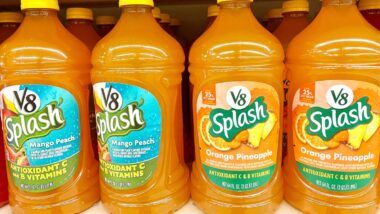Top Class Actions’s website and social media posts use affiliate links. If you make a purchase using such links, we may receive a commission, but it will not result in any additional charges to you. Please review our Affiliate Link Disclosure for more information.
Papa John’s allegedly sent a glut of coupons via text message, well above agreed-upon amounts consented to for these messages, according to a recent class action lawsuit.
Plaintiff Bryan Flores says Papa John’s sent him several unsolicited text messages which included coupons. Flores argues that the number of text messages sent to him and other consumers far exceeded the limit agreed upon, thus violating federal telemarketing laws.
Papa John’s is a popular pizza chain that offers promotional campaigns to thousands of consumers around the country. In order to benefit from these deals, Papa John’s requires its customers to consent to receive these deals through text message.
Although the agreements limit Papa John’s to sending only six coupons via text each month, the company allegedly “takes advantage of the goodwill of consumers by sending them text messages in excess of the limited consent it obtains.” Flores allegedly received seven text messages in March 2019, exceeding the limit he had agreed on.
Flores argues that these excessive texts violated the Telephone Consumer Protection Act (TCPA).
What is the TCPA?
TCPA is a federal law that limits the telemarketing calls and texts a business can send consumers. Unless a customer provides express, prior written consent, businesses are not allowed to send them spam texts, robocalls, or junk faxes. Even having an established business relationship with a consumer is not enough for a company to escape liability under TCPA.
Flores argues that Papa John’s violated TCPA with “superfluous text messages” that were sent without prior express consent from him or other consumers.
“Defendant was and is aware that it was sending the above-described text messages on a widespread basis to consumers who had not provided prior express consent to receive them,” the TCPA class action lawsuit claims.
Even worse, Flores claims that the pizza company sent the text messages via an automatic dialing system – equipment expressly prohibited under TCPA unless a consumer consents. The TCPA class action argues that the use of an automatic dialing system is evidenced by “the high volume of text messages, the generic and impersonal nature of the messages, and Defendant’s use of an SMS code.”
Flores seeks to represent a Class of consumers who received text messages from Papa John’s in excess of the number of texts they consented to receive as a part of the company’s text message advertising campaign.
On behalf of himself and other consumers, Flores seeks up to $1,500 for each TCPA violation, injunctive relief, declaratory relief, disgorgement, restitution, court costs, and attorneys’ fees.
The Papa John’s TCPA Class Action Lawsuit is Flores v. Papa John’s USA Inc., Case No. 2:20-cv-01672, in the U.S. District Court for the Central District of California.
Report Coupons Via Text Message
The Federal Trade Commission (FTC) offers a variety of suggestions for individuals who are slammed with unsolicited spam texts. To deal with and report spam text, consumers may be able to filter these messages through their phone settings, their wireless provider, or even a third-party app. Individuals should also post their numbers to the national Do Not Call registry.
Additionally, the FTC accepts reports of unsolicited spam texts. Consumers can report these text message through their phone’s message app, by forwarding the text message to 7726 (SPAM), or directly to the FTC on their website.
If you’re frustrated at receiving unsolicited coupons via text message despite reporting the issue to the authorities, you may be able to find relief through legal action. Sending telemarketing spam texts without consumer consent is illegal under TCPA, meaning that businesses can be held accountable if they violate the law.
Even better, TCPA allows consumers to recover up to $500 per violation or $1,500 per intentional violation if they bring a lawsuit against the offending company. This means that you could recover thousands of dollars if you were the victim of many unsolicited calls or coupons via text message.
Join a Free Text Message Coupon Class Action Lawsuit Investigation
If you have received coupons or sales advertisements in a text message from a restaurant or clothing retailer and your phone number is registered with the National Do Not Call registry, you may be entitled to compensation.
This article is not legal advice. It is presented
for informational purposes only.
ATTORNEY ADVERTISING
Top Class Actions is a Proud Member of the American Bar Association
LEGAL INFORMATION IS NOT LEGAL ADVICE
Top Class Actions Legal Statement
©2008 – 2024 Top Class Actions® LLC
Various Trademarks held by their respective owners
This website is not intended for viewing or usage by European Union citizens.

















22 thoughts onPapa Johns Class Action Alleges Coupons via Text Message
harassing texts. Plz stop it. Thanks. I thought it was nice at first. Now. Im done. Overwhelmed already.
So tired of harassing texts. Plz stop it. Thanks